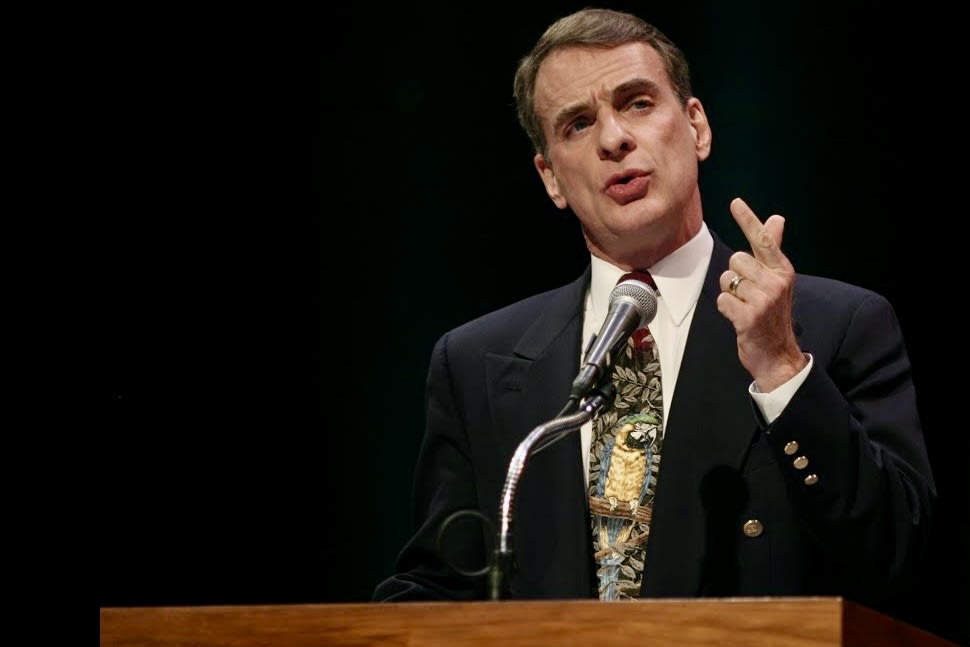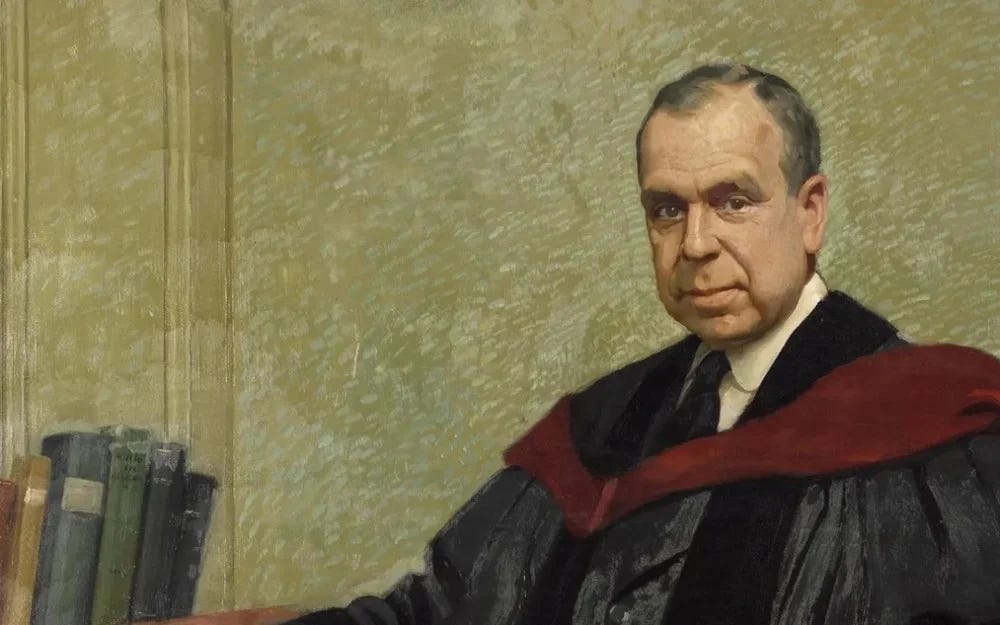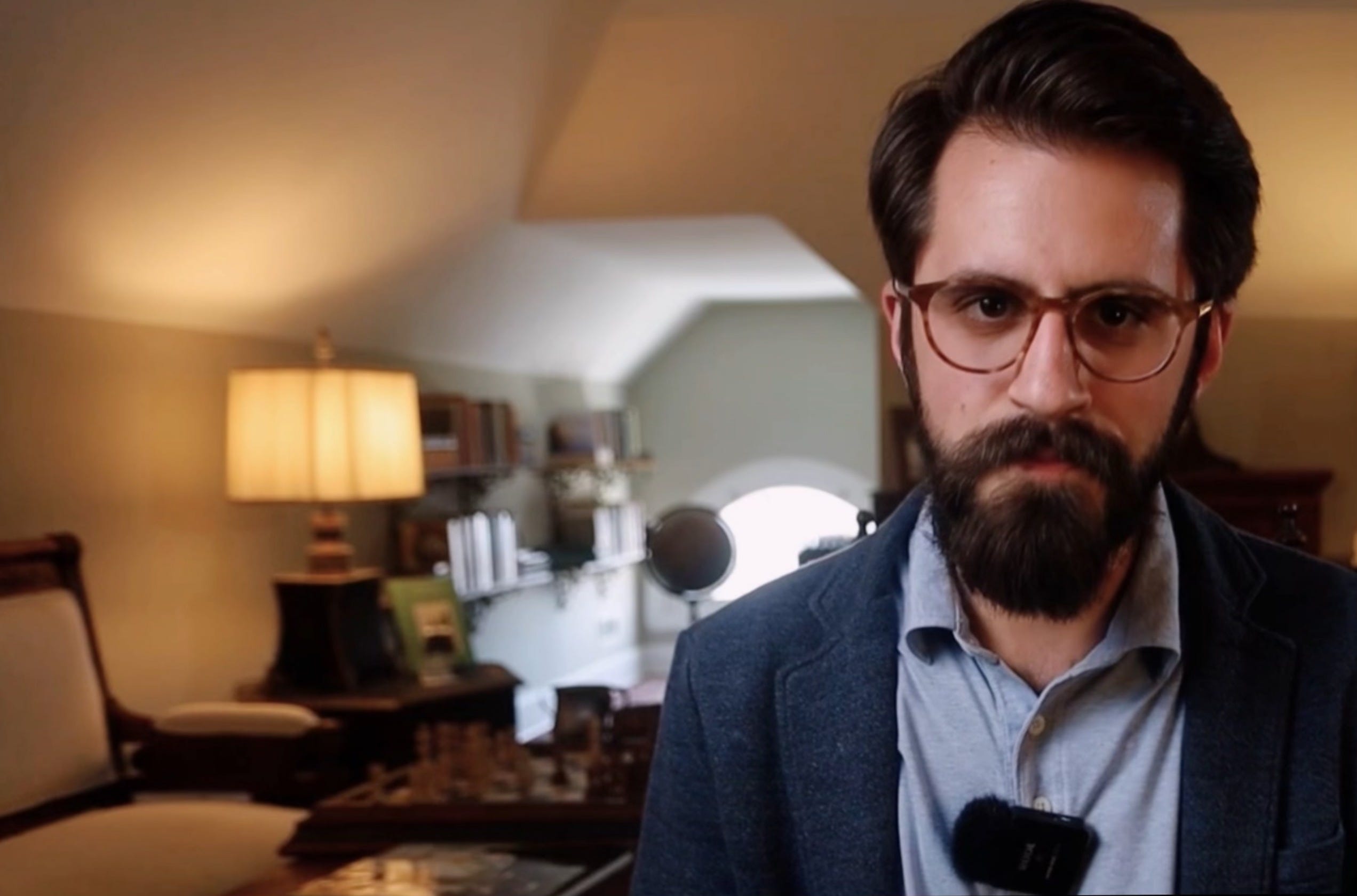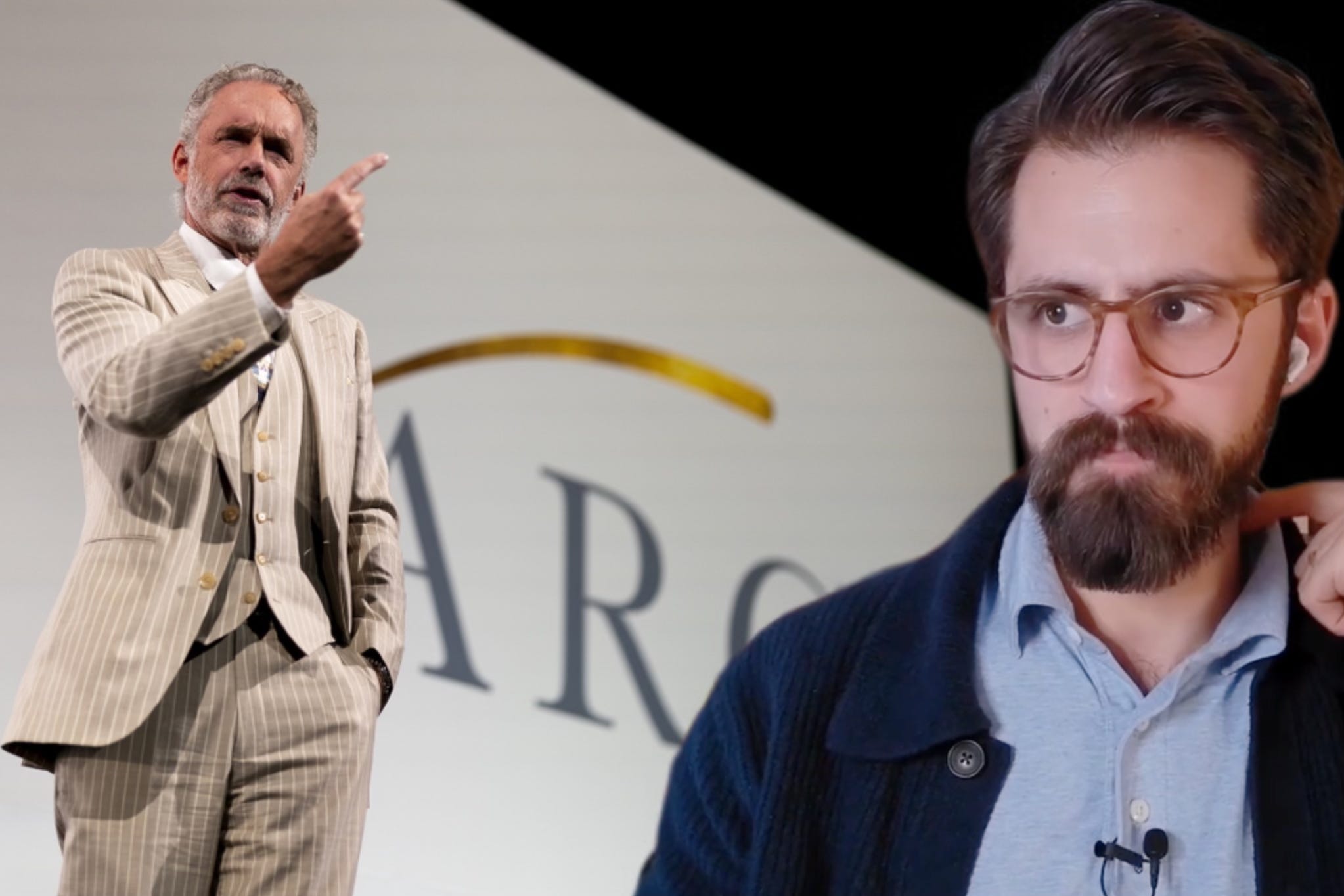Does the "No Meaning Without God" argument rest on a mistake?
Description
§ In a recent lecture, popular science and philosophy communicator Curt Jaimungal presented an argument against the simulation hypothesis.
The Simulation Hypothesis: The idea that we are in a realistic computer-simulation like The Matrix.
Advocates argue that surprising features of reality, like false collective memories (“The Mandela Effect”), are what you would expect if the simulation hypothesis were true. Therefore, it probably is true.
But Jaimungal demonstrates that this argument rests on a logical fallacy. (Relevant clip: 16:42 )
Consider its structure:
* If the simulation hypothesis were true, you would expect false collective memories.
* There are false collective memories.
* Therefore, the simulation hypothesis is probably true.
In other words,
* On hypothesis H, you would expect evidence E.
* There is evidence E.
* Therefore, E indicates the probability of H.
But this reasoning is precisely backwards.
In order to demonstrate the probability of H given E, we cannot use the probability of E given H. We want the probability of the hypothesis given the evidence, not the probability of the evidence given the hypothesis.
Logicians call this a “transposed conditional” or “the prosecutor’s fallacy.”
And several common Christian apologetic arguments commit the same logical fallacy.
§ Seven years ago, William Lane Craig met atheist Rebecca Newberger Goldstein in debate.
But this was not any ordinary atheist-theist debate, because also on stage was psychologist Jordan B. Peterson.
In his remarks, Craig argued that, given the hypothesis of atheism, we would not expect life to be meaningful or morality to be objectivity, and that given the hypothesis of theism, we would.
Yet both his interlocutors argued for moral realism (the objectivity of moral truth), independently of the God hypothesis. As a result, Craig was left trying to argue his opponents out of their moral realism, because it is not what you would expect on an atheistic worldview.
I recently listened to and reacted to the whole of debate and discussion. I’ll be posting my (very long) reaction to YouTube soon. Here’s the first clip from the video:
Why did Craig end up in this unenviable position? Because his argument, the “No meaning without God” argument, is—like the above simulation argument—backwards.
Consider its structure:
* On the God hypothesis, you would expect to find meaning (or morality or mind).
* Life is meaningful. We all want life to be meaningful.
* Therefore, if we want life to be meaningful, we need to adopt the God hypothesis.
It’s paired with the opposite argument about atheism (or naturalism):
* On naturalism, you would not expect to find meaning (or morality or mind).
* We do find meaning. It would be nice if life were meaningful.
* But, if you believe in naturalism, you should conclude—in order to be consistent—that life is not meaningful.
Like the argument for the simulation hypothesis, the reasoning proceeds by considering the probability of the evidence given the two hypotheses on offer.
If God exists, it is probable intuitively that he would create meaningful rather than meaningless forms of existence. But that’s not what needs demonstrating.
What needs demonstrating is that it is probable that God exists, given the evidence of meaning and morality.
We need to prove the probability of God given meaning/morality, not the probability of meaning/morality given God.
Therefore, we need first to demonstrate the existence of meaning, morality, or mind independently of either hypothesis.
And of course, that’s where we encounter another wrinkle.
§ Rather than admitting the independently-evident existence of meaning or morality, Christians often object to it.
As you may have noticed, I had to strike through the middle premise of each argument. Unlike in the simulation case, the evidence is not even granted.
Instead, when Christians encounter a non-believer who believes in morality or meaning, we pressure them to call this into question, given its improbability on an atheistic view.
But if there is no meaning or morality, then there is no reason to postulate God as the explanation of meaning and morality.
How do you explain morality on an atheistic worldview? Well, if there’s no morality or meaning, then there’s no explaining to do. Unless we grant that morality and meaning are demonstrable independently of one’s worldview, the argument cannot get started.
§ The proper order of natural theology is not to begin from a hypothesis and postulate what we would expect to find if it were true.
Rather, the first step of a natural-theological argument is to demonstrate the phenomenon that will serve as evidence, whether meaning, morality, or mind.
That means that, in this debate, Goldstein and Peterson are engaging in the appropriate first step of natural theology, demonstrating the relevant phenomenon independently of metaphysical hypotheses.
The second step is to demonstrate that the explanation of that phenomenon requires the existence of something else as its minimal, sufficient explanation.
But notice what Popular Christian Apologetics does instead. It fallaciously reverses step two, by considering the probability of the evidence on the hypothesis, instead of the hypothesis on the evidence. And it undermines nonbelievers’ confidence in the phenomenon of step one.
In effect, this is worse than the problem with the simulation argument. There, the evidence is granted. Here, the evidence is not even granted.
It’s as if the simulation people tried to argue everyone else into thinking that hallucinations and false collective memories don’t exist. But those phenomena were supposed to be your evidence for the simulation hypothesis!
Popular Christian Apologetics argues in just about the opposite direction it should argue.
§ What are the steps to demonstrate that meaning or morality—let’s pivot to morality—indicates the existence of God?
1. First, you must demonstrate the truth of moral realism, that moral statements express truths about reality. This is no easy feat. But let’s imagine you were able to do so.
(I think that page one of Mere Christianity, Strawson’s “Freedom and Resentment,” and Jonathan Haidt’s moral psychology all do this work, in a certain way. By demonstrating that we all engage in moral thinking and can’t help but doing so, I think we are forced to recognize that we all are moral realists, whether we like it or not. See my video on natural law.)
2. Second, you must argue that moral realism cannot be explained naturalistically. My late professor Helen De Cruz carefully considers these arguments in her chapter on the moral argument for God’s existence. When it comes to moral psychology, there are many available evolutionary explanations of moral psychology, even if I would raise questions about them.
But for moral realism, evolutionary explanations tend to be “debunking.” We believe these things, not because they are true, but because they contribute to group survival. As a result, many thinkers—both religious and secular—think it is difficult to see how naturalism can account for the truth of moral statements. From scientific ‘is’ statements, you don’t arrive at any moral ‘ought’ statements. Hence, a moral argument against naturalism has good odds of success.
But what follows? Many folks who adopt moral realism “from below” adopt either a kind of Platonism or a kind of social constructivism (a non-reductionist one). For example, in analytic philosophy, Iris Murdoch proposed a kind of Platonism to explain the reality of the good and the truth of moral statements in contradiction to the ethical emotivism of the logical positivists. On the other hand, John Rawls resurrected moral philosophy by introducing a kind of constructivism, which many take to have realist implications. As a result, most secular analytic philosophers today are moral realists.
(Even Peter Singer recently came out as a moral realist.)
3. Step three is to argue for the minimal, sufficient non-naturalistic explanation of moral realism. This could be the Platonism or constructivism mentioned above, or true Kantianism, where moral statements express not truths of theoretical reason but of the form of practical reasoning.
Most Christians are not so chastened in their reasoning. Rather, we propose God as explanation and jump to the conc
























